Abarth 500 595 695 VS Hyundai i10
Abarth 500 595 695
The Abarth 500, particularly in its 595 and 695 renditions, captures the spirit of Italian motoring with its compact yet aggressive design. Known for its lively performance and distinctive styling, this little powerhouse is a joy to drive, offering an engaging experience that appeals to enthusiasts. With its rich motorsport heritage, the Abarth 500 embodies the essence of fun and excitement on both the streets and the race track.
more informationHyundai i10
The Hyundai i10 impresses with its compact design, making it an ideal choice for navigating through busy urban environments. Its interior is surprisingly spacious, offering drivers and passengers comfort beyond what one might expect from a city car. The model combines efficiency and practicality, making it an attractive option for those seeking both economy and functionality in their daily commute.
more information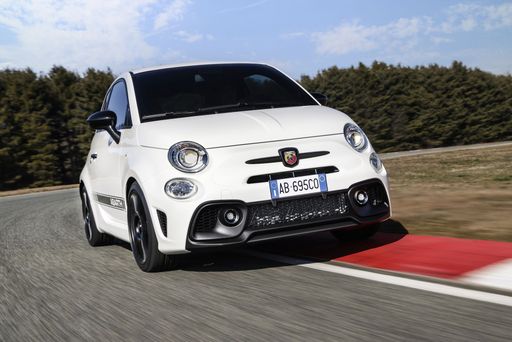 @ media.stellantis.com
@ media.stellantis.com
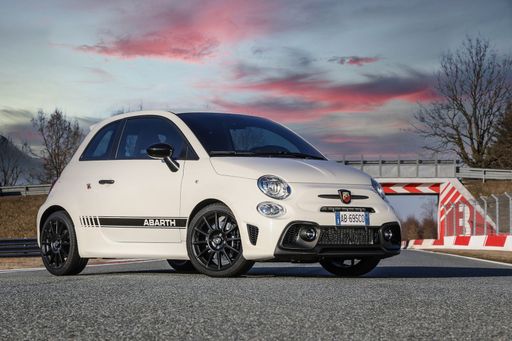 @ media.stellantis.com
@ media.stellantis.com
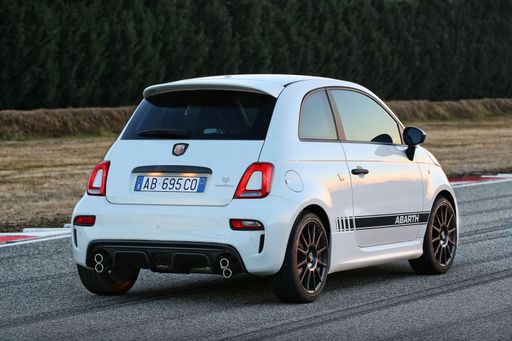 @ media.stellantis.com
@ media.stellantis.com
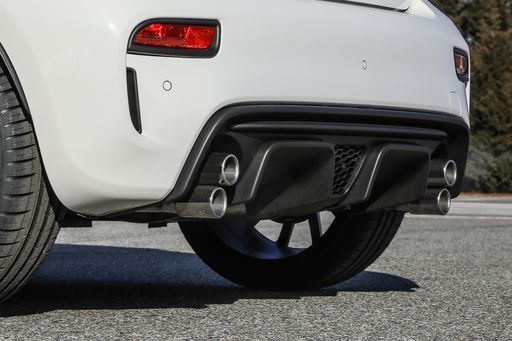 @ media.stellantis.com
@ media.stellantis.com
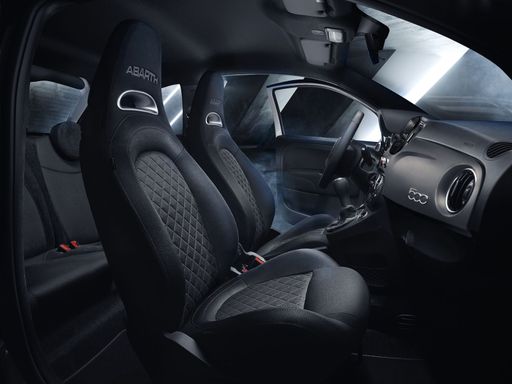 @ media.stellantis.com
@ media.stellantis.com
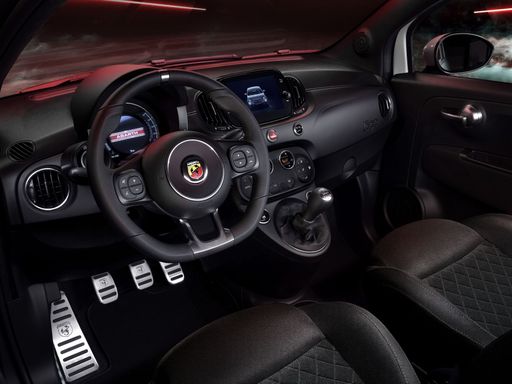 @ media.stellantis.com
@ media.stellantis.com
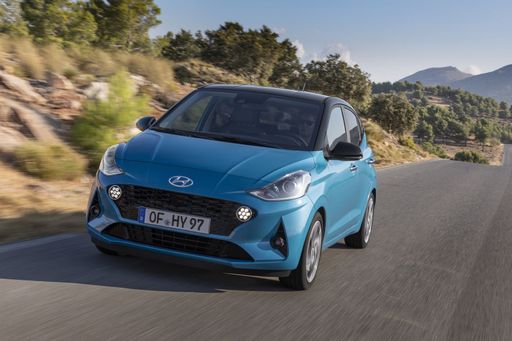 @ hyundai.news
@ hyundai.news
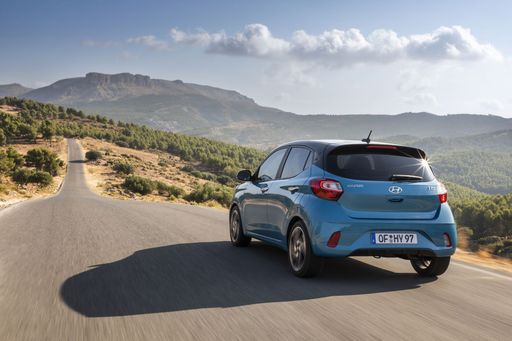 @ hyundai.news
@ hyundai.news
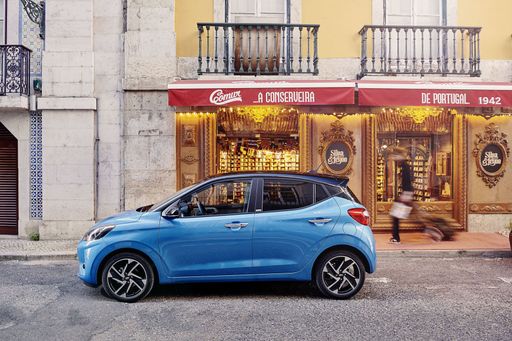 @ hyundai.news
@ hyundai.news
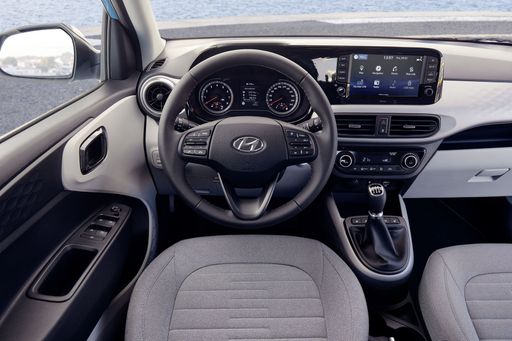 @ hyundai.news
@ hyundai.news
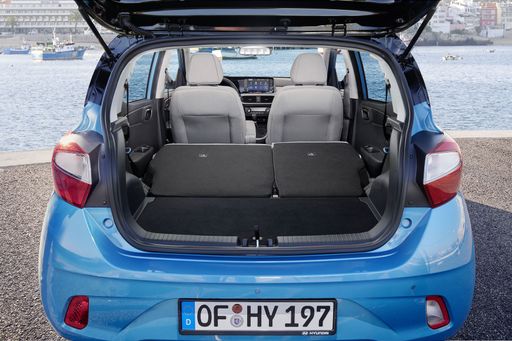 @ hyundai.news
@ hyundai.news
Costs and Consumption |
|
|---|---|
|
Price
about 32600 - 39400
£
|
Price
about 14600 - 19000
£
|
|
Consumption L/100km
-
|
Consumption L/100km
4.9 - 5.4
L
|
|
Consumption kWh/100km
17.2 - 18.9
kWh
|
Consumption kWh/100km
-
|
|
Electric Range
242 - 265
km
|
Electric Range
-
|
|
Battery Capacity
37.8
kWh
|
Battery Capacity
-
|
|
co2
0
g/km
|
co2
111 - 123
g/km
|
|
Fuel tank capacity
-
|
Fuel tank capacity
36
L
|
Dimensions and Body |
|
|
Body Type
Hatchback
|
Body Type
Hatchback
|
|
Seats
4
|
Seats
4 - 5
|
|
Doors
3
|
Doors
5
|
|
Curb weight
1410 - 1435
kg
|
Curb weight
996 - 1099
kg
|
|
Trunk capacity
185
L
|
Trunk capacity
252
L
|
|
Length
3673
mm
|
Length
3670 - 3675
mm
|
|
Width
1682
mm
|
Width
1680
mm
|
|
Height
1518
mm
|
Height
1480 - 1483
mm
|
|
Payload
370 - 385
kg
|
Payload
344 - 423
kg
|
Engine and Performance |
|
|
Engine Type
Electric
|
Engine Type
Petrol
|
|
Transmission
Automatic
|
Transmission
Manuel, Automatic
|
|
Transmission Detail
Reduction Gearbox
|
Transmission Detail
Manual Gearbox, Automated Manual
|
|
Drive Type
Front-Wheel Drive
|
Drive Type
Front-Wheel Drive
|
|
Power HP
155
HP
|
Power HP
63 - 90
HP
|
|
Acceleration 0-100km/h
7
s
|
Acceleration 0-100km/h
11.4 - 18.4
s
|
|
Max Speed
155
km/h
|
Max Speed
143 - 175
km/h
|
|
Torque
235
Nm
|
Torque
93 - 172
Nm
|
|
Number of Cylinders
-
|
Number of Cylinders
3 - 4
|
|
Power kW
114
kW
|
Power kW
46 - 66
kW
|
|
Engine capacity
-
|
Engine capacity
998 - 1197
cm3
|
|
Top speed
155
km/h
|
Top speed
143 - 175
km/h
|
General |
|
|
Model Year
2023
|
Model Year
2024
|
|
CO2 Efficiency Class
A
|
CO2 Efficiency Class
C, D
|
|
Brand
Abarth
|
Brand
Hyundai
|
Abarth 500 595 695
The Abarth 500 has long been regarded as a significant name within the compact performance car segment, blending iconic Italian styling with impressive performance. The latest iterations, namely the Abarth 500 595 and 695, along with the 500e electric model, continue this tradition. Enthusiasts and everyday drivers alike are drawn to their sporty ethos and cutting-edge technologies.
Abarth 500: A Fusion of Style and Performance
The Abarth 500 boasts a distinctive design that is instantly recognisable. Its compact dimensions, measuring 3673 mm in length and 1682 mm in width, ensure it retains that quintessential city car appeal while still providing an eye-catching presence on the road. The aggressive stance and sporty enhancements reflect Abarth's racing heritage, making it a desired choice for performance aficionados.
Powertrain Innovations
At the heart of the Abarth 500 lineup lies an efficient electric powertrain that produces a substantial 155 PS (or 114 kW). This power is delivered through an automated transmission, ensuring seamless gear changes and an engaging driving experience. The inclusion of a reduction gearbox allows for rapid acceleration, achieving 0-100 km/h in just 7 seconds, making it competitive in its class.
Exceptional Efficiency and Range
One of the standout features of the Abarth 500e variants is their impressive energy efficiency. Depending on the model, the energy consumption ranges between 17.2 and 18.9 kWh/100 km, showcasing Abarth's commitment to sustainability without compromising performance. With an estimated range between 242 and 265 km on a single charge, the Abarth 500e models are well-equipped for both urban commutes and longer journeys.
Technical Specifications at a Glance
The Abarth 500 595 and 695 models feature a robust torque output of 235 Nm, offering responsive acceleration and confident overtaking capabilities. The maximum speed is electronically limited to 155 km/h, providing a thrilling driving experience while maintaining safety standards. Additionally, the vehicle's lightweight construction, with a total weight between 1410 kg and 1435 kg, further enhances agility and handling.
Thoughtful Interior and Practicality
Inside, the Abarth 500 is crafted for both comfort and functionality. Accommodating up to four occupants, the interior remains practical despite its sporty intentions. A boot capacity of 185 litres ensures that the vehicle is not just about speed but also everyday usability. Innovative technology features include a user-friendly infotainment system that integrates seamlessly with smartphones, enhancing the driving experience further.
Conclusion: The Future of Abarth
With the Abarth 500 595, 695, and the innovative electric 500e models, Abarth continues to strive for a perfect balance between performance and efficiency. These vehicles not only reflect the brand's rich heritage but also pave the way towards a more sustainable future in automotive engineering. Each drive in an Abarth 500 promises to be a spirited affair, delivering excitement and innovation mile after mile.
Hyundai i10
Introduction to the Hyundai i10
The Hyundai i10 has consistently proven to be a dependable and stylish companion for urban driving. Known for its compact design and efficiency, this hatchback offers a perfect blend of modern aesthetics and practicality, making it a popular choice for city dwellers and small families alike.
Performance and Efficiency
The Hyundai i10 is available with both manual and automatic transmissions, catering to various driving preferences. Engine power ranges from 63 to 90 PS, providing a versatile driving experience for both novice and seasoned drivers. The fuel consumption varies between an impressive 4.9 to 5.4 litres per 100 kilometres, fitting for those looking to minimise fuel costs while also reducing their carbon footprint.
Engine and Transmission
Equipped with a choice of 1.0-litre or 1.2-litre engines, the i10 offers up to 172 Nm of torque, ensuring lively performance. The models feature front-wheel-drive configurations, allowing for smooth handling and reliable road performance. The car excels in city driving but is equally capable on longer journeys.
Interior and Comfort
Despite its compact size, the Hyundai i10 does not compromise on interior space and comfort. It accommodates four to five occupants comfortably, offering sufficient legroom and headroom. Its flexible seating arrangement and a 252-litre boot make it ideal for both quick trips and weekend getaways.
Safety and Technology
Safety remains a priority with Hyundai, and the i10 is no exception. It comes equipped with multiple airbags, stability control, and advanced braking systems. Technology-wise, the i10 features a user-friendly infotainment system with smartphone connectivity, ensuring a pleasant and connected drive.
Design and Style
The Hyundai i10’s design is both modern and sleek, making it stand out in the compact hatchback segment. With a length ranging from 3670 to 3675 mm, a width of 1680 mm, and a height of 1480 to 1483 mm, the i10 strikes a perfect balance between style and functionality.
Affordable Pricing and Value
The i10 is available in several trims including the Select, N Line, and Prime, among others, with prices ranging from €16,990 to €22,190. Considering its features and low running costs — with monthly expenses estimated between €694 to €793 — the Hyundai i10 offers substantial value for those seeking an economical yet stylish hatchback.
Conclusion
The Hyundai i10 combines efficiency, modern design, and practicality in a compact package. Whether you are seeking a reliable city car or an economical daily driver, the Hyundai i10 is a strong contender worth considering in the compact car market of 2024.
